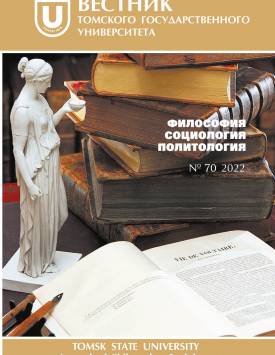On an interesting connection between traditional syllogistics and imaginary logic
The article considers a new approach to the construction of semantics for syllogistic statements - an intensional one, in which general terms are compared not with the extensions of concepts (as it has been since the time of Aristotle), but with sets of attributes (that is, the content of concepts), and syllogistic constants are considered not as relations of inclusion of classes of extensions of concepts, but as signs of relations between concepts according to their content. This approach to the interpretation of syllogistics goes back to the logical works of Leibniz, which are analyzed in the article. The semantics formalizing the Leibniz approach proposed by Vladimir Markin is presented. Special attention is paid to the description of a special type of construction of Nikolay Vasiliev’s imaginary logic, the interpretation of imaginary logic based on the intensional interpretation of attributive statements with two types of negations (strict or absolute and weak) is considered. The formalization of this variant of imaginary logic proposed by Dmitry Zaitsev and Vladimir Markin is given. The article presents calculus corresponding to two intensional semantics: for traditional syllogistics C4 (Lukasiewicz syllogistics) and for imaginary logic-2 by Vasiliev (IL2). The main result of the article is the conclusion that the IL2 system with two types of negations is a conservative extension of the C4 system. To demonstrate this, a sublanguage (containing only those syllogistic constants contained in C4) is allocated in the richer IL2 system, with the help of which the axioms of traditional syllogistics are set, the identity of the construction of the semantics of the two systems is shown. The corresponding theorems are formulated and proved: the theorem that the IL2 calculus is an extension of the C4* calculus (this is the C4 calculus given through a sublanguage); a theorem on the semantic equivalence of two systems; a theorem on conservative extension (Vladimir Smirnov’s definitions are used for proofs). The authors declare no conflicts of interests.
Keywords
syllogistics, intensional semantics, conservative extension, Leibniz, VasilievAuthors
| Name | Organization | |
| Legeydo Maria M. | Lomonosov Moscow State University | legeydo.mm@philos.msu.ru |
| Konkova Antonina V. | Lomonosov Moscow State University | konkova@philos.msu.ru |
References

On an interesting connection between traditional syllogistics and imaginary logic | Tomsk State University Journal of Philosophy, Sociology and Political Science. 2022. № 70. DOI: 10.17223/1998863X/70/4
